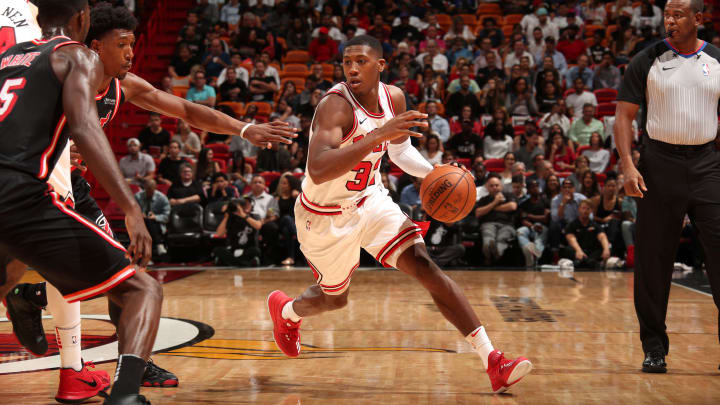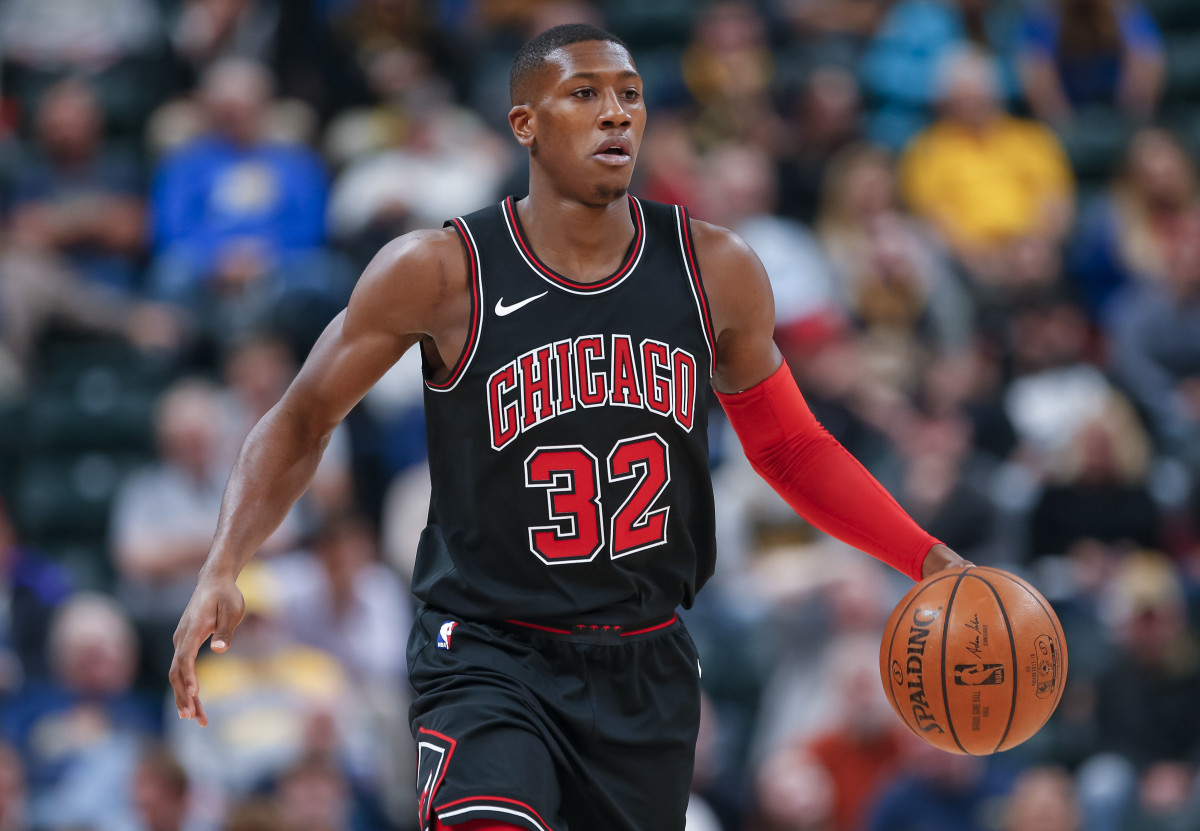Kris Dunn Is Changing Minds in Chicago

Desperation tends to warp everything it touches, even for those with the best of intentions. Kris Dunn was a victim of its influence last season. As the No. 5 overall pick in Minnesota, Dunn played each possession as if it were some final judgment of his playing ability. Every miss and turnover further closed his game off from the rest of the team. Dunn drove with his head down and forced the issue with regularity.
The Dunn we've seen in Chicago breathes more freely, relaxed by the fact that he is a young team's best point guard by default. The Bulls have no need to rush and no better options; it's Dunn or bust for the time being, and the franchise has every reason to be patient after acquiring Dunn in the blockbuster trade of Jimmy Butler. A little slack has gone a long way. Dunn and Wolves coach Tom Thibodeau might have seemed like a smart working pair, but Fred Hoiberg's offense—and softer tact—have opened up Dunn's game in a meaningful way.
No Lob Lost: Chris Paul’s Return Gets Ugly as Rockets Storm Clippers' Locker Room
Relative to last season, Dunn appears most improved as a playmaker. It's common for developing guards to fix their attention to their most obvious, immediate options. Dunn, as a rookie, rarely seemed to glance beyond them. His entire game appeared overly tight—wound up completely in the scenario in front of him. A pick-and-roll became a binary: Dunn would attempt to thread a pass to the roll man or call his own number. The new Dunn approaches that same premise from a different place, squaring the attention he draws with a wider view of his teammates' positioning.
This kind of poised, mature play seemed miles beyond Dunn in Minnesota:
Dunn is by no means a natural passer, but he's back to making the same kinds of functional plays he did at Providence. Progress from here will be defined by how effectively he tightens the screws. It's not uncommon to see shooters bend down to field one of Dunn's passes, or corral one only to have it bobble in their hands. There are creators who gently place the ball in a teammate's shooting pocket and those who simply get the ball there as best they can. Dunn is in the latter camp, but already he's progressing to the point where he can somewhat preempt what a defense expects:
The ease with which Dunn now throws hit-ahead passes on the break—not to a scorer in position, but to another ball-handler—is reassuring. Some of Dunn's rookie struggles stemmed from an insistence on doing everything. It wasn't enough to make the right play; Dunn had to make the right play that led directly to a score. Dunn wasn't a selfish player, though he was tense enough to play like one. This revised approach is far healthier, and so much of it seems to come from noticeable relief.
Frankly, Dunn needs this. He is best understood at this point as a defensive specialist who also happens to work as a playmaker. His ability to anticipate—and detonate—opponent's plays is downright thrilling. Every lazy pass in his general vicinity is punished, leading to one of the highest steal rates in the league. Dunn is strong enough, too, that he can hold his position while making a play on an opponent's dribble. The framework is there for a disruptive, switchable defender.

But the evidence also suggests that Dunn, who is nearly 24, will face an uphill battle against inefficiency. His turnover numbers are an improvement over last year, proportionally speaking, but still a bit worrisome considering that Dunn isn't exactly passing his teammates open. To make matters worse: There are 90 players in the league this season to average as many points per game (13.6) as Dunn has this season. Among them, he ranks 88th in true shooting. Dunn is neither a finisher nor much of a shooter, and at this stage his handle isn't stable enough to help draw fouls reliably.
NBA Draft Dispatch: Zion Williamson's Decision, HoopHall Standouts and More
This is where the age curve starts to hedge against the optimism surrounding Dunn's progress. Consider that Dunn, in his second season, is almost the exact same age as Elfrid Payton, now in his fourth. The two have nearly identical stat lines—save that Payton is actually a better shooter. There's something to be said for years of practical, on-the-job experience, yet Dunn is quickly approaching the age at which most players' games begin to set. It's likely that we're already seeing a rough outline of the player Dunn will ultimately be.
Maybe that's enough. Markkanen has impressed in his debut season and Zach LaVine, just returned from an ACL injury, has picked up right where his prodigious bucket-getting left off. There's clearly room for Dunn beside them, and he will undoubtedly get better as he goes. His track is simply different from, say, the 20-year-old Markkanen—allowing more for incremental improvement than any more breathtaking leap. As evidenced by their play this season, the Bulls can find a winning player in that. They can survive rashes of turnovers and clanked jumpers so long as Dunn is digging in defensively and working to read the floor. What matters most is that Dunn is figuring out who he is as a player—and distinguishing himself from the rookie who never got out of his own way.
